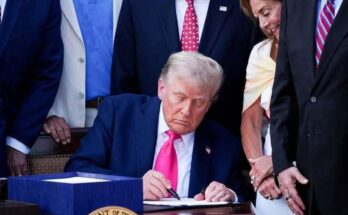
We’ve all had that moment — spotting a spider quietly sitting in a corner, weaving its web, or crawling across the ceiling like it owns the place. For most, it’s a reason to grab a tissue or call someone else to deal with it. But what if that little spider is more than just an uninvited houseguest? What if it’s trying to tell you something?
For generations, cultures around the world have viewed spiders not as pests, but as powerful spiritual symbols. From Native American beliefs to ancient folklore, the spider has often been considered a messenger, a weaver of fate, and a silent guide through the uncertain paths of life.
If you’ve been noticing spiders showing up in your home lately, especially in specific rooms, it may be time to stop and listen. These encounters may be quietly pointing you toward personal transformation, creative awakening, or emotional healing.
Here’s what spiritual thinkers believe spiders in your home may be trying to teach you — and why their presence might be more meaningful than you think.
1. Spiders Teach Us to Trust Life’s Timing
A spider doesn’t spin its web with instant results in mind. It doesn’t know what it’ll catch, or even when — but it spins anyway, patiently, trusting the process.
If you’ve recently seen a spider in your home, it may be a gentle reminder that good things take time. Are you feeling frustrated with the pace of your life? Anxious about when — or if — your plans will ever come together?
The spider teaches us that consistency, faith, and patience are more powerful than control. Just like its web, our efforts — even the quiet, unseen ones — will catch something when the time is right. We just need to keep weaving.
2. You’re Being Called to Create Something New
Spiders are among nature’s finest architects. Their delicate, detailed webs are constructed from within — made of their own silk, spun from instinct.
When a spider shows up at home, it may be urging you to express your inner creativity. What’s something you’ve been dreaming of starting — writing, painting, gardening, learning an instrument? Have you been telling yourself you’re too old or it’s too late?
The spider says otherwise. You were made to create — not just in your younger years, but now, too. Your wisdom and life experience are rich soil for new beauty. Don’t let self-doubt stop you from spinning your web.
3. Face What Scares You
For many people, spiders trigger instant fear. But from a spiritual perspective, that fear might be exactly the point.
If you’re startled by a spider’s presence, it might be reflecting a deeper challenge: something in your life that you’ve been avoiding or putting off. This could be an uncomfortable truth, a decision you’re dreading, or an area of personal growth you’ve resisted.
Seeing a spider could be a prompt to look closer at the fears that have been quietly running your life. It’s a reminder that courage isn’t about being fearless — it’s about facing what frightens you, and stepping through it anyway.
4. It’s Time to Take Charge of Your Future
A spider doesn’t wait for someone else to build its web. It doesn’t sit idle, hoping for conditions to change. It gets to work, shaping its own environment.
Spiritually, a spider’s visit may be calling you to take control of your own destiny. Are there decisions you’ve been postponing? Are you waiting for someone else to give you permission to start fresh?
The spider’s message is simple: you are not powerless. You hold the thread in your hands. Start weaving.
5. Find Balance in Your Life
With its eight legs and perfectly symmetrical webs, the spider represents balance — physical, emotional, and spiritual.
Its sudden appearance may be asking: where in your life are things out of alignment? Are you working too much and resting too little? Are your relationships feeding your soul or draining it? Are you listening to your own needs — or only everyone else’s?
Spiders remind us that health, happiness, and growth come from harmony. Not from perfection, but from giving attention to all the parts of our lives that matter.
What a Spider Might Mean — Depending on Where You See It

Spiritual interpretations of spider encounters can also depend on the room in which you see them. Here’s what they may signify when they show up in specific areas of your home.
In the Bedroom: Messages from the Soul
Your bedroom is your most personal space — a place of rest, reflection, and dreams. When a spider appears here, it may symbolize deeper intuitive wisdom trying to surface.
It could be urging you to pay more attention to your dreams, your gut feelings, or unresolved emotions. You may need rest. You may need peace. Or perhaps it’s time to trust that quiet voice inside that’s been whispering for change.
In the Kitchen: Prosperity and Spiritual Nourishment
A spider in your kitchen — the heart of the home — may bring a message of abundance, gratitude, or spiritual nourishment.
It may be encouraging you to find fulfillment not just in food or routine, but in deeper emotional or creative satisfaction. Are you feeding your soul, or just checking off boxes? Are you sharing your gifts with others?
This visit may be a nudge to embrace generosity and joy — especially when it comes to the people and passions that sustain you.
In the Bathroom: Letting Go and Renewal
Bathrooms represent cleansing, both physically and emotionally. If you spot a spider here, it may be encouraging you to release something heavy you’ve been carrying — a resentment, a habit, a belief that no longer serves you.
This could be the perfect time to embrace change, to wash away the old and make space for something new. Like the water that flows through the faucet, this message is about movement — and emotional clarity.
More Than Just a Web Spinner
The next time you see a spider in your home, take a breath before reaching for a broom.
Instead of seeing a pest, try viewing it as a spiritual guide — one that carries ancient wisdom woven into silk threads and silent movement. These tiny creatures have walked alongside humanity for millennia, appearing in myths, sacred stories, and spiritual practices across cultures and generations.
Whether you believe in signs or just love a good metaphor, a spider can still teach us something. About slowing down. About trusting ourselves. About knowing that what we build — day by day — matters.
Because at any age, especially later in life, your story is still unfolding. And the spider reminds us: it’s never too late to weave something meaningful.


